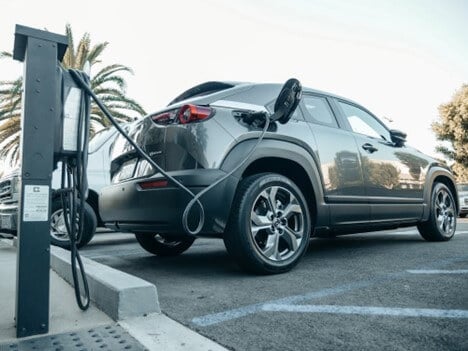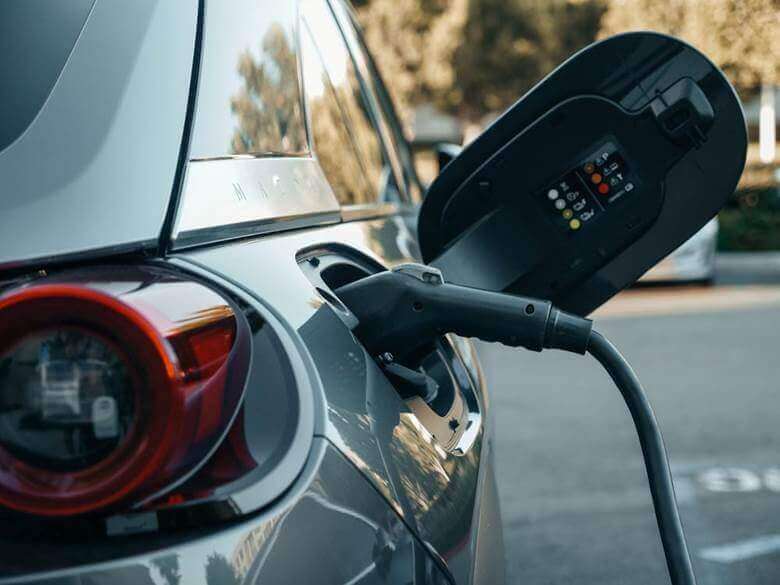The debate between EV vs. Gas Cars is a hot topic and evolving each day as people look for a more eco-friendly and cost-effective alternative to traditional gas or diesel-powered vehicles. While EVs have their advantages, gas cars still hold their own, especially when it comes to distance, refueling time, and overall convenience.
If you’re considering choosing between electric vs. gas cars, it’s important to understand the differences in cost of ownership, performance, and maintenance before making your decision. This EV vs. gasoline car comparison will help you weigh the pros and cons, from fuel efficiency vs. charging costs to long-term expenses and environmental impact.
EV Vs. Cars: Performance and Driving Experience

When it comes to performance, EV vs. Gas Cars have distinct differences. Tesla vehicles are known for instant acceleration due to their torque delivery. Unlike gas engines, which require time to build up power, an EV’s electric motor provides an almost instantaneous response, making it quick off the line. Many high-performance EVs can even outpace gas-powered sports cars in a straight-line race, and the future looks promising for e-powered muscle cars.
Handling and ride quality vary by model, but EVs generally have a lower center of gravity due to their heavy battery placement in the chassis. This design improves stability and cornering capabilities. In contrast, gas-powered vehicles tend to offer a more traditional driving feel, especially in responsiveness at higher speeds.
One noticeable difference in EV vs. gas car driving experience is sound. The traditional engine noise is absent in an EV, making for a significantly quieter ride. While some drivers enjoy the near-silent operation of an EV, others may miss the familiar growl of a gas-powered engine.
Cost of Ownership
When comparing EV vs. Gas Cars, the cost of ownership is often a major deciding factor. Electric cars vs. gas cars cost varies significantly, as EVs typically have a higher upfront cost due to expensive battery technology. However, lower maintenance costs and savings on fuel efficiency vs. charging costs can help offset the initial investment over time.
Another key factor is the EV vs. gas car maintenance costs, especially when it comes to repairs. There are many horror stories about the cost to repair an EV, but when comparing similar models, the difference is not as dramatic as some might think. According to a study by the Highway Loss Data Institute, the price to repair an EV is approximately 2% higher than a comparable gas-powered vehicle. It’s important to avoid generalizations—comparing the repair costs of a Lucid Air to a Nissan Leaf isn’t an apples-to-apples comparison. Don't let anecdotal stories prevent you from considering an EV as a viable option.
Fuel Efficiency vs Charging Costs
In many regions, electricity is cheaper than gas, which means it costs less to keep an EV running. Keep in mind that you’ll be charging at home or at public charging stations and subject to the electricity rates in that area. Tesla Superchargers offer some of the fastest charging solutions, making EV ownership more convenient. Overall, EV owners save more on fuel costs than gas cars.
The fluctuating price of fuel can make predicting the overall costs difficult to pin down, but know that gas cars are less efficient because of their engine waste compared to the streamlined electric power delivery system in an EV.

Maintenance and Longevity
When comparing EV vs. Gas Cars, EV maintenance vs. gas car maintenance is always an important factor to consider.
One of the biggest advantages of electric cars vs. gas cars cost of ownership is their lower maintenance requirements. EVs have fewer moving parts and don’t require routine services like oil changes, engine tune-ups, or transmission maintenance. Most EVs use a single-speed transmission, which means fewer components that can wear out. However, some models still require transmission fluid maintenance.
In addition, EV vs. gas car performance extends to braking systems. Regenerative braking in EVs helps extend the life of brake pads, reducing long-term maintenance costs.
On the downside, EV battery longevity is a key concern. While EV vs. gas maintenance costs are lower overall, battery replacement costs can be high. Most EV manufacturers offer an 8 to 10-year or 100,000-mile warranty, but after that, battery replacement costs can range from $3,000 to $20,000, depending on the model. According to Edmunds, extreme climates can also impact battery life, shortening its overall lifespan.
The good news? Battery technology advancements are improving, and prices are expected to decrease in the future, making long-term ownership of an EV more cost-effective.
Environmental Impact
If sustainability is a priority for you, EV vs. Gas Cars environmental impact is an important factor to consider. While EVs have a clear advantage over gas-powered vehicles in terms of emissions, the full carbon footprint of gas vs. electric vehicles goes beyond just tailpipe emissions.
EVs produce zero emissions while driving, significantly reducing air pollution and greenhouse gas emissions compared to gas-powered cars. However, the overall EV vs. gas environmental impact depends on the source of electricity. Charging an EV with coal-generated electricity is less environmentally friendly than using renewable energy sources like solar or wind power.
On the other hand, gas cars rely on fossil fuels, which contribute to air pollution and climate change. Even the most fuel-efficient gas engines still emit carbon dioxide, making them a less sustainable option in the long run.
EV Vs Cars: Convenience and Infrastructure
When deciding between EV vs. Gas Cars, charging infrastructure vs. gas stations is a major factor. Gas stations are abundant, making refueling quick and convenient, while EV charging networks are still expanding.
While the number of public EV charging stations is steadily increasing, they remain far less common than gas stations, particularly in rural areas. For long-distance travelers or those living in remote locations, finding a charging point can be challenging. Unlike gas stations, which have visible roadside signage, EV owners often need to rely on Google Maps, Apple Maps, or EV-specific apps to locate the nearest charging station.
Conclusion
The choice between EV and gas ultimately depends on your priorities and driving needs. Long-term costs and environmental concerns may make EVs the right fit, while convenience and traveling make a gas vehicle more appealing. It all comes down to your lifestyle and driving needs. What's your pick in the EV Vs Gas debate?





